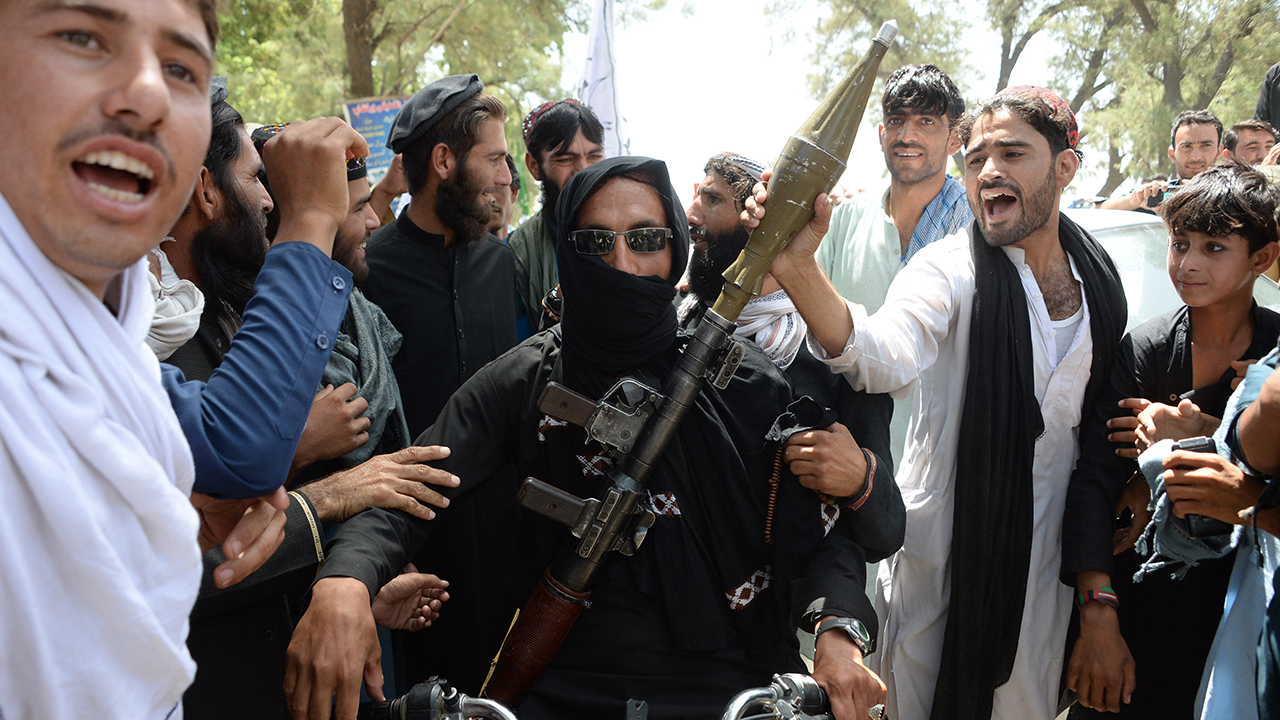
The Taliban said Sunday they had captured the key Afghan city of Kunduz, a claim confirmed by an AFP correspondent in the vicinity, as fierce fighting raged in the centre of a second northern capital.
Kunduz is the third provincial capital to fall in the past three days, but the most significant Taliban gain since the insurgents launched an offensive in May as foreign forces began the final stages of their withdrawal.
“After some fierce fighting the mujaheedin, with the grace of God, captured the capital of Kunduz province today,” the Taliban said in a statement.
An AFP reporter in the vicinity said “Kunduz has fallen … the Taliban have taken all the key installations in the city.”
Another resident described the city as being enveloped in “total chaos”.
“The Taliban have reached the main square of the city. Aircraft are bombing them,” said Abdul Aziz, a resident reached by phone.
The government’s tenuous grip on the north appeared to be slipping by the hour, with the Taliban also claiming control of northern provincial capital Sar-e-Pul.
A lawmaker from the city told AFP the insurgents were in the city-centre and “street-to-street fighting is ongoing.”
Of the three provincial capitals that have fallen since Friday, Kunduz is by far the most significant.
It has been a perennial target for the Taliban, who briefly overran the city in 2015 and again in 2016 but never managed to hold it for long.
The ministry of defence said government forces were fighting to retake key installations.
“The commando forces have launched a clearing operation. Some areas, including the national radio and TV buildings, have been cleared of the terrorist Taliban,” it said in a statement.
Kabul’s inability to hold the north may prove crucial to the government’s long-term survival.
Northern Afghanistan has long been considered an anti-Taliban stronghold that saw some of the stiffest resistance to militant rule in the 1990s.
The region continues to be home to several militias and is also a fertile recruiting ground for the country’s armed forces.
– US air strikes -On Friday the Taliban seized their first provincial capital, Zaranj in southwestern Nimroz, and followed it up a day later by taking Sheberghan in Jawzjan the following day.
Fighting was also reported on the outskirts of Herat, in the west, and Lashkar Gah and Kandahar in the south.
The pace of Taliban advances has caught government forces flatfooted, but they had some respite late Saturday after US warplanes bombed Taliban positions in Sheberghan.
“US forces have conducted several air strikes in defence of our Afghan partners in recent days,” Major Nicole Ferrara, a Central Command spokesperson, told AFP in Washington.
Sheberghan is the stronghold of notorious Afghan warlord Abdul Rashid Dostum, whose militiamen and government forces were reported to have retreated to the airport.
Dostum has overseen one of the largest militias in the north and garnered a fearsome reputation fighting the Taliban in the 1990s — along with accusations his forces massacred thousands of insurgent prisoners of war.
Any retreat of his fighters would dent the government’s recent hopes that militia groups could help bolster the country’s overstretched military.
The government has said little about the fall of the provincial capitals, other than vowing they would be retaken.
That has been a familiar response to most Taliban gains of recent weeks, although government forces have largely failed to make good on promises to retake dozens of districts and border posts.
The withdrawal of foreign forces is due to be complete at the end of this month, ahead of the 20th anniversary of the September 11 attacks on the United States that sparked the invasion which toppled the Taliban.



